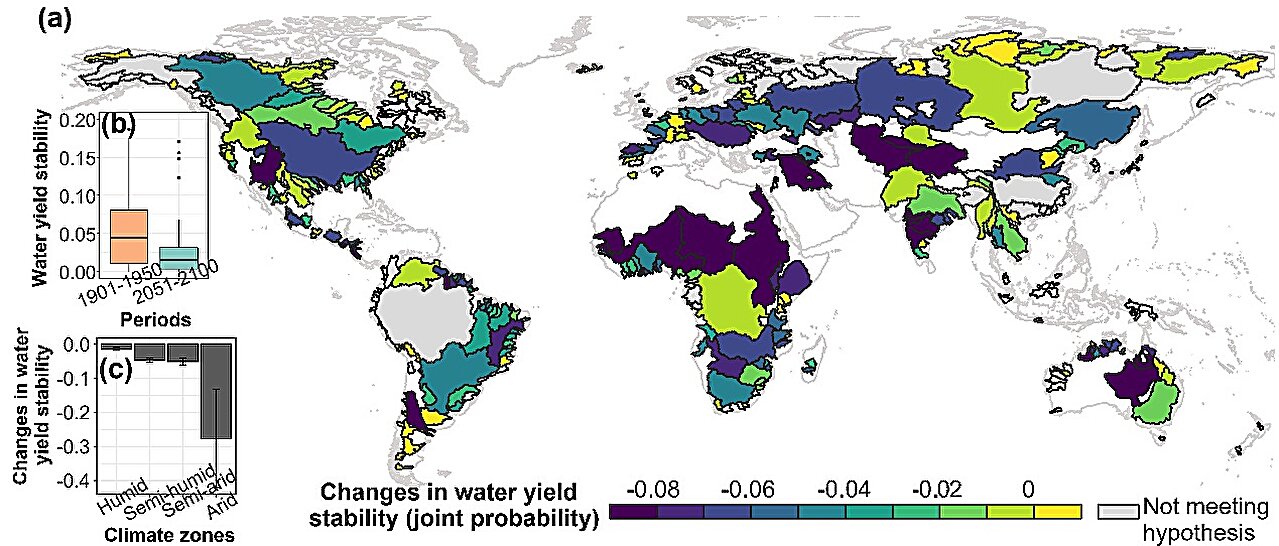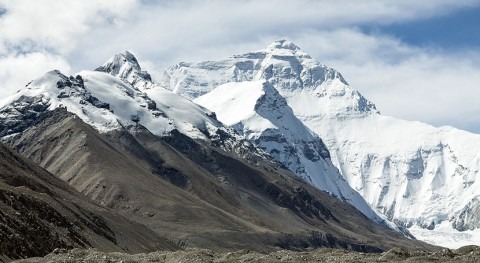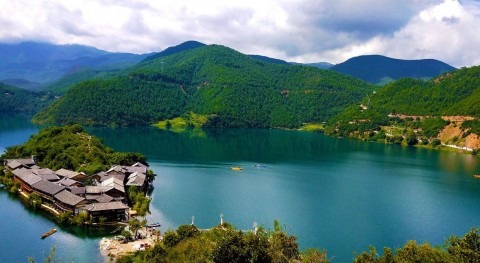Extreme climatic events such as droughts, heat waves, and cold spells not only modify hydro-meteorological conditions but also alter the underlying characteristics (e.g., wildfires due to droughts changing the vegetation cover). Intense human activities, such as river channel modifications, afforestation, deforestation, industrialization, and urbanization, further amplify the variability of watershed system components.
These changes directly or indirectly impact the hydrological processes of the watershed system. The water yield of the watershed system may experience persistent disturbances by enhanced extreme climate events and human activities under global warming, challenging both system components and system balance.
The water yield or hydrological system of the watershed continuously dynamic changes since human activities and climate change alter the balance state of this system, potentially leading it to disruption, restoration, or transformation into a new state. Therefore, the stability of the water yield in the watershed system is the capacity to restore its original state or transition to a new state under the effect of disturbances (i.e., climate or underlying characteristics change).
Their findings show that water-yield changes related to underlying characteristics could be offset by climate-related water-yield changes across all climate zones, maintaining the water yield ratio steady
In this regard, the research group led by Prof. Zhiyong Liu and Prof. Xiaohong Chen from Sun Yat-Sen University and Yu Yan Ph.D. student adopted the Budyko framework and leveraged simulations from the CMIP6 simulations to investigate the stability of water yield in watersheds.
Their findings show that water-yield changes related to underlying characteristics could be offset by climate-related water-yield changes across all climate zones, maintaining the water yield ratio steady (i.e., the compensation effects). There are higher compensation effects in watersheds of humid zones than in arid zones.
However, global watersheds will turn more sensitive to underlying characteristics and less sensitive to climate variation in the future. Both climate- and underlying-related sensitivities increase in watersheds with arid climates. The stability (estimated by joint probability) of watershed water yield will gradually diminish in the future. The watersheds in arid zones experienced the highest decline in the stability of water yield.

The spatial patterns of change in the stability of water yield for 280 watersheds from 1901–1950 to 2051–2100 (a–b). Credit: Science China Press
For the compensation effects, watersheds in humid zones have strong hydrological system resistance, which can still keep the water yield steady after experiencing large water yield changes due to climate or underlying. In terms of sensitivity coefficients, the sensitivity of water yield to both climate and underlying in arid watersheds increases g.
In a further quantification of the hydrological stability of watersheds based on the joint probability, it is again argued that arid watersheds are destabilized that it is not easy to maintain a steady water yield.
The sensitivity coefficients inside the watersheds in the arid-area watersheds and the external basic characteristics have evolved from one state to another. The findings provide a reference for the future sustainable water resources development under climate change, highlighting the vulnerability of the water resources in arid and semi-arid watersheds.
The work is published in the journal Science China Earth Sciences.






